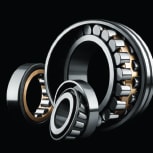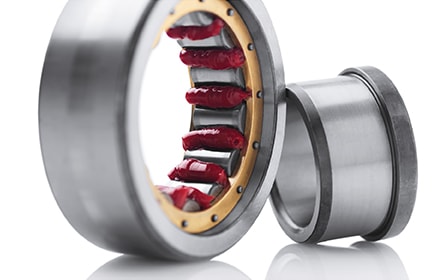Mobilith SHC™ 220 helps mining company reduce maintenance costs and increase efficiency
Customer-estimated annual savings of more than
*US $4.2M

Situation
A Brazilian mining company operates a fleet of 19,000 open gondola ore cars for the transportation of iron ore between mines and ports. Each of the four ore cart wheels contains two roller bearings, for a total of 152,000 bearings in-service across the fleet. Carrying an average of 465,000 tons of ore per day, the axle bearings used in the wagons are commonly subjected to operating temperatures as high as 194° Fahrenheit (90 C). At these elevated temperatures, premature bearing failures can develop from reduced lubricant viscosity and leaks within the bearing assembly, impacting the overall productivity of the transportation department. To help extend bearing life and improve productivity, the company approached Cosan Lubrificantes e Especialidades, ExxonMobil’s exclusive distributor, for a more effective lubrication solution.
Recommendation
After performing an inspection of the bearing applications, Cosan recommended transitioning to Mobilith SHC™ 220, a high-performance synthetic grease. Formulated with a proprietary additive system and advanced lithium-complex thickener, Mobilith SHC™ 220 grease is designed to perform in demanding applications and at extreme temperatures.
Result
Since making the transition to Mobilith SHC™ 220 grease, the company has realized several performance benefits, including a reduction in the operating temperature of the bearings from19 4 ° F (90 C) to 158 ° F (70 C). They’ve also reported that the grease’s high viscosity index oil has helped reduce wear and corrosion, extending bearing life from 600,000 km to 860,000 km, reducing replacement parts and labor by 43%. The company has improved operational efficiency by reducing lubricant consumption and preventing equipment failure, generating a company-estimated savings of US $4,269,076 over four years.
*This proof of performance is based on the experience of a single customer. Actual results can vary depending upon the type of equipment used and its maintenance, operating conditions and environment, and any prior lubricant used.


